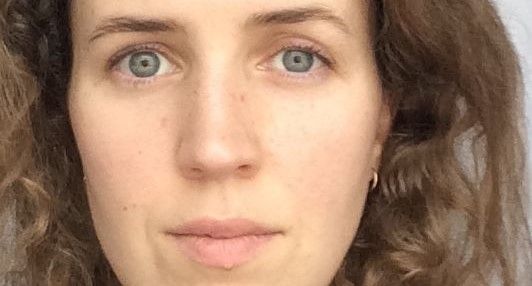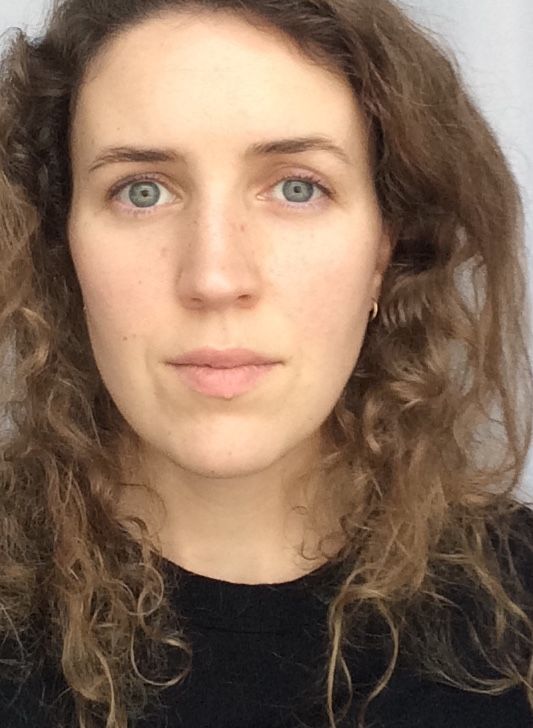Fresh Faculty: Rose Lenehan


Q: Why did you choose to study philosophy?
A: I felt like philosophy was the discipline that allowed people to ask really big questions about what kind of life to live and what kind of society to try to fight for, and I also thought that other disciplines were focused on teaching facts rather than theories or ways of looking at things. Now, I think facts are much more important.
Q: What was it like being an Amherst student when you were here?
A: There were a lot of great things about it and a lot of hard things about it. I was so grateful to have access to this education and to these professors. I was one of those people who would spend all this time looking at the course list and planning a million different things for what classes I wanted to take. And I made wonderful friends who I still care about, that I’m still really close with. But I think there are some really hard things about being here, and I think it’s very hard to understand them at the time because you don’t have a lot of perspective. And when you spend time in other kinds of institutions and with other kinds of people, you can have a better sense of what’s specific to this context and you know that some of the ideas that are taken for granted here are because of the way that social life was arranged here. It’s easier in some other places.
Q: What is the scope of your research interests?
A: I work in social and political philosophy, especially in critical philosophy of race and also in Marxism and in feminist philosophy, and I’m really focused on questions about the relationship between racism and capitalism, and between class and race — because I want things to be really different. And so these seem like really deep, difficult questions.
Q: Where were you before coming to Amherst?
A: Before Amherst, I was a postdoctoral at UCLA for two years. I was only there for six months before the pandemic started, but it was a two-year job. I taught feminist philosophy and philosophy of race and a political philosophy class that was Marx-related.
Q: What brought you back to Amherst College?
A: Well, it’s good to have a job. But I was really excited to come back because this fellowship gives people a lot of time to research — you only teach one class the whole two years. So there’s a lot of time to do your own work and also to be part of this cohort. [All the fellows] are working on similar topics, but from very different disciplines. And so we’ve all had so much to learn from each other.
Q: What is it like working at CHI Think Tank at Amherst?
A: It’s wonderful. I mean, we’re a part of this cohort that meets several times a week and we share our work with each other. And we do readings together and we attend salons together. Because we all have different training, we can all recommend different readings to each other that the others haven’t heard about and bring really different perspectives to each other’s work. It’s the kind of experience you could never get in just a normal academic department because it’s all these different perspectives on a topic coming together.
Q: What is a day-in-the-life working like?
A: I usually try to come to my office early in the morning and write for a few hours when my brain is still fresh. Then I usually spend the afternoon reading and doing other less interesting tasks you have to do. I usually divide the day that way into writing while my brain is awake, and then reading pretty widely. Part of the reason I wanted to take this fellowship was to have a lot of time to read. To address [the questions I’m interested in] properly, you have to read very, very widely. It’s just really important to have a grasp on all these different disciplines and these different methodologies for thinking about those questions.
Q: Did your Amherst education impact your reading habits?
A: I mean, we were assigned such fantastic readings. But also, being close with people who were really intellectually curious and really voracious readers [helped]. Some people I was really close with prioritized [reading for pleasure] over their classwork, but they were really intellectually engaged and always wanted to talk about ideas, and were always recommending things, so it made it exciting in a way that carried on after college and made me realize [real-world problems better]. When you’re in graduate school, you’re trapped. You’re forced to read a very narrow set of texts in order to be trained in the discipline. It was really good to have gotten a sense of how much more exciting stuff there was outside of that too.
Q: How was your experience with co-advising a student’s senior thesis?
A: We started working together in the spring. The way that the [philosophy] department does [senior thesis advising] is that students took a class with one faculty member together early [in the fall] to start shaping their thesis ideas. And then in the spring, they divided up among faculty members [to assign to students whose interest match with the faculty's research background], and this particular student [that I co-advised] was writing on topics closely related to feminist philosophy. Her thesis was about what she called the beauty industrial complex. It’s about the ways that a certain set of institutions have a material incentive to make people feel bad about themselves so that they buy more things, and what kinds of epistemic harm that causes to people who are the target of that industry. That’s something I have a strong background in. I also have a co-advisor Lauren J. Leydon-Hardy, another professor in the philosophy department who works on epistemology, and it was a great experience.
Q: What do you envision your class looking like? What kind of assignments or discussions do you want to create for your students?
A: Well, it’s going to be a seminar. And I haven’t totally decided everything yet. Because I find it hard to make these decisions. But we’re gonna cover a pretty large array of material, and not all of it counts as what’s normally considered philosophy. I think partly because the questions I’m most interested in work best addressed in other fields, even though they’re, I think, very philosophical questions. So one of the things we’re going to do is bring the skill set that I think people have from more traditional philosophy classes and more traditional philosophy texts to bear on these texts where the arguments are harder to find, or where you have to do more reconstructive work to understand what the author is saying. And then we’ll do nothing too unusual paper-writing wise, but try to reconstruct and evaluate the arguments in these texts.
Q: What do you want students to gain from your class?
A: [On the most basic level], I want them to grasp this set of ideas that I think are incredibly powerful and exciting, and have really changed the way that I think about a lot of important political questions. I think one of the skills that I want people to get is to be able to identify what’s presupposed or taken for granted about a lot of our moral and political theorizing. One of my favorite thinkers, the historian Barbara Fields, talks about how ideology lives at the level of common sense. And so it’s very hard to recognize because we’re just swimming in it. And I think reading some of these texts allows people to step back and have some perspective, some critical perspective on things they would never otherwise think of as a choice that we’re all making rather than the way things have to be. And then I want people to improve as writers. That’s really important to me. And I think philosophy is a really, really good discipline for helping people improve as writers because we prioritize clear, straightforward thinking so much.
Q: When you’re not doing research or teaching, what do you do in your free time?
A: The main thing I do outside of my job is the tenant organizing work. When I was in Los Angeles, I was really involved in the Los Angeles Tenants Union. Even though I’m already here, I still do a lot of work for them by trying to connect other tenant organizers and other people who are members of tenant unions. We’re hosting a convention in June in Los Angeles for all tenant organizers around the country. In a lot of cities, rents are incredibly high. A lot of people have landlords that they’ve never met, who will raise their rent or will try to evict them or who won’t make repairs. Bringing those people together to figure out how to fight back. That’s what the tenant union does. And that’s the main way I spend my time.
Q: Fall 2022 is your first semester teaching at Amherst. What does it feel like becoming a faculty member at Amherst during the transition to a “new normal”?
A: I taught one class at UCLA in person before we went on Zoom. I’m really, really looking forward to being in person again. I think you can grow so much maturity in a discussion and you can build a community in a way that makes people feel more comfortable. Taking risks or saying things they’re not sure about, or trying things out. I’m really looking forward to it. I think it’ll be really nice to return to in-person teaching.
Q: What is working with other faculty members in the philosophy department at Amherst like?
A: It’s wonderful. Some of them were my own teachers, so it’s very cool to be on the other side, and to be relating to them as colleagues. I think people have a bunch of different interests and a bunch of different areas of expertise. Doing philosophy together is really fun because everybody brings something different and I think we all have a lot of admiration for our different curiosities and different abilities.
Q: What is your favorite Amherst spot?
A: I think it would be the Book and Plow Farm, especially in the fall when they say “Come and get free flowers!”. That’s my favorite thing to do. To walk down there and pick flowers.
Q: How about 10 years ago?
A: Ten years ago, I really loved the Zu (Humphries House). I had a lot of great friends who lived there and it was just a really special fun place.
Q: Lastly, is there anything you want students to know about you?
A: I can give them a great movie recommendation. I always have a great movie recommendation.